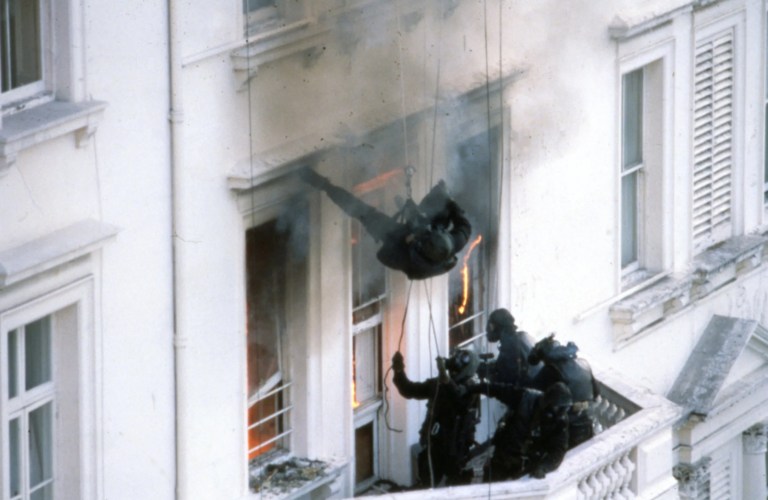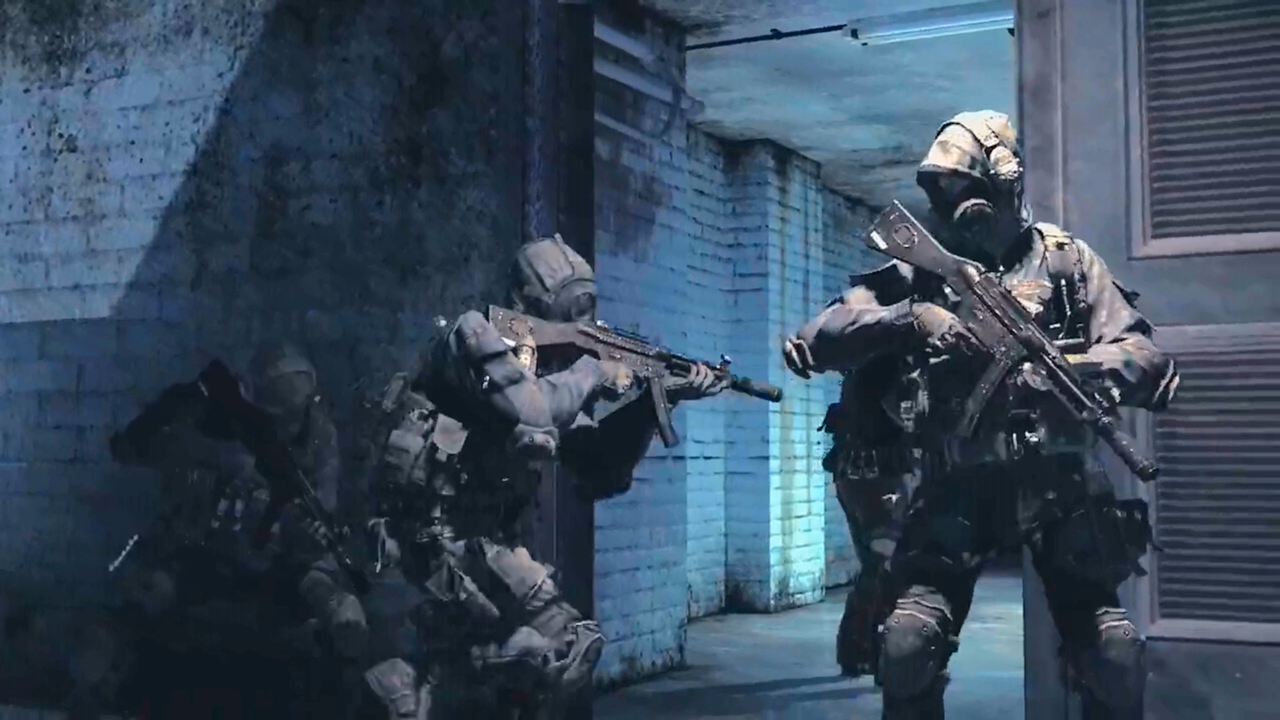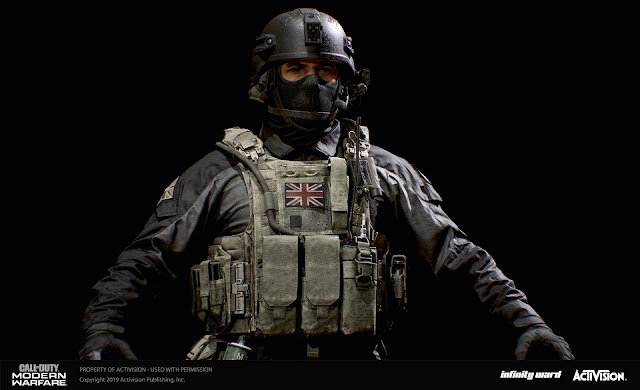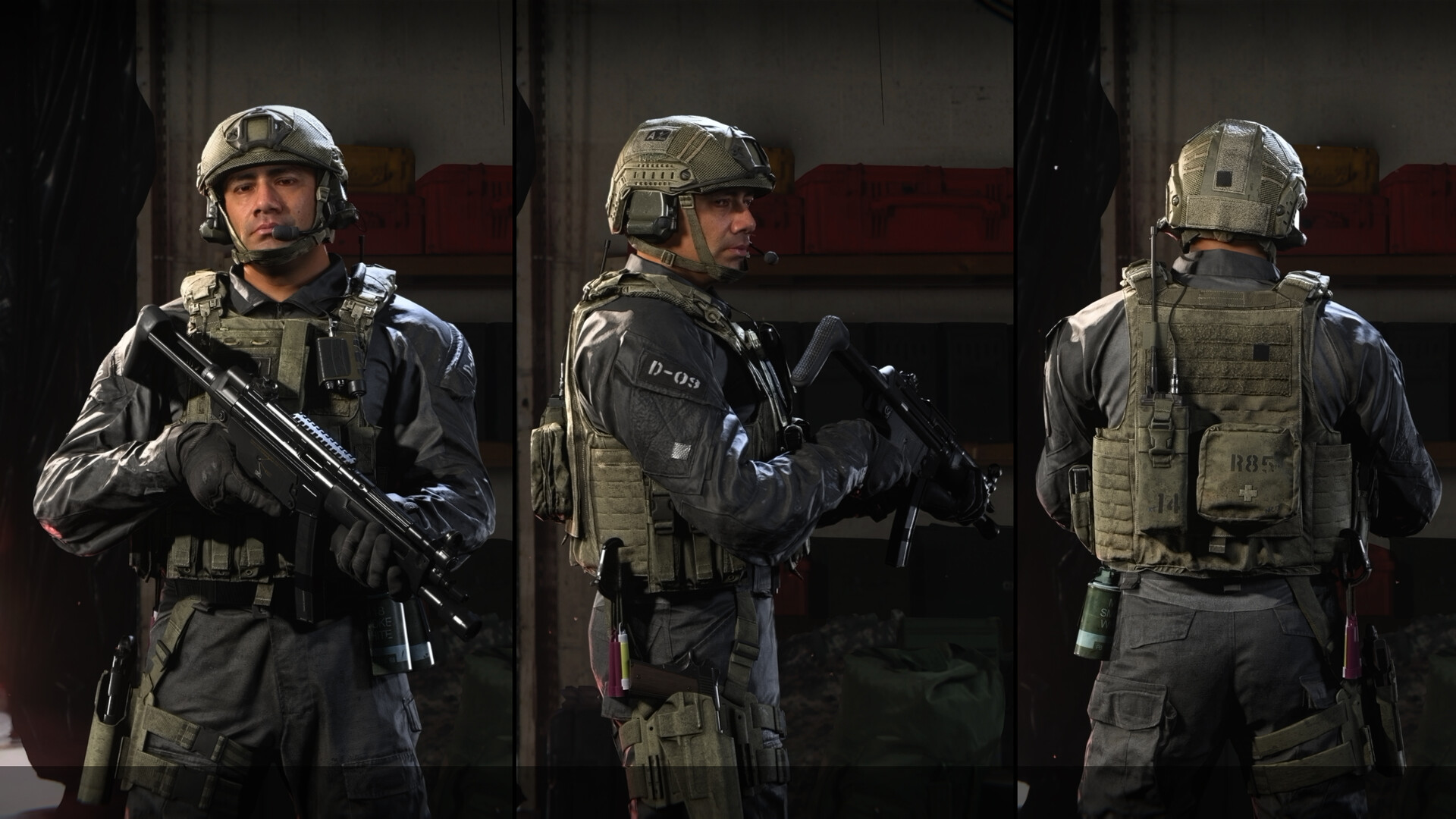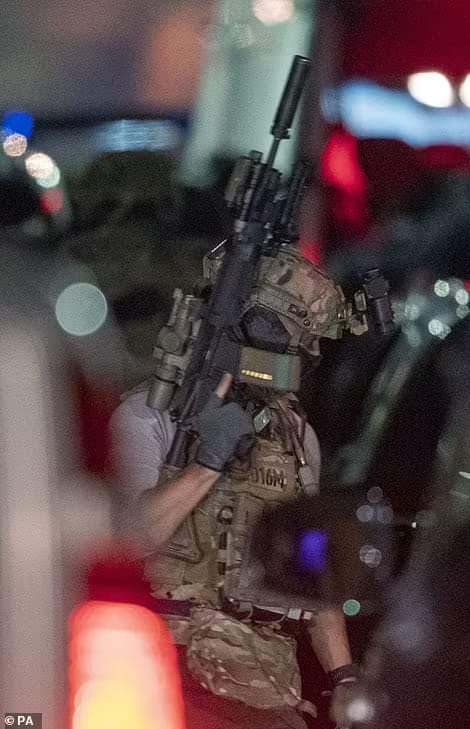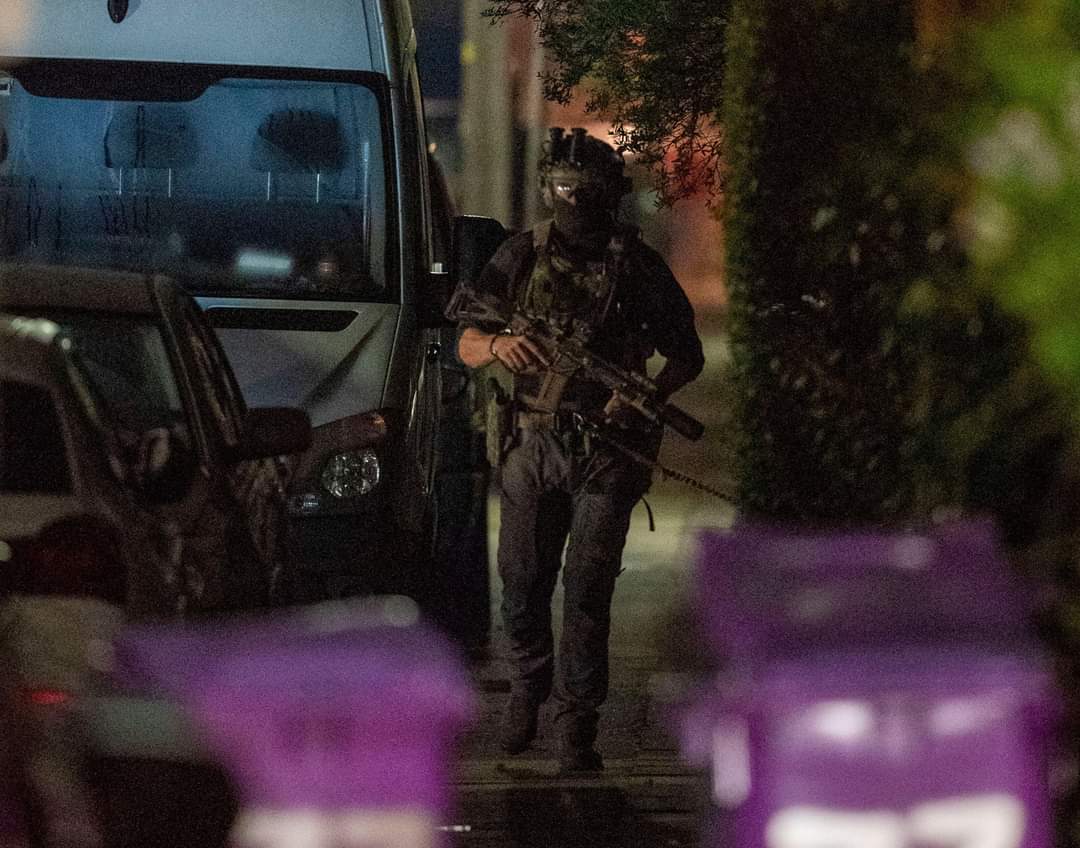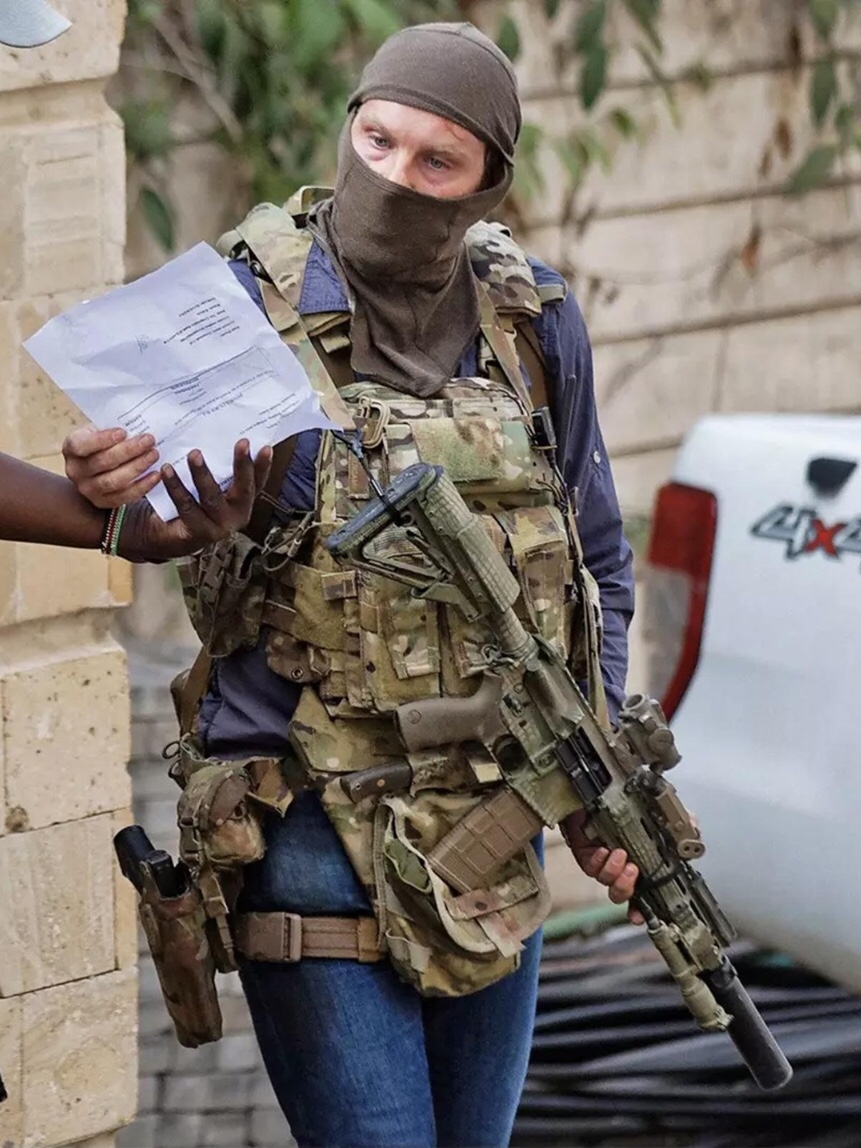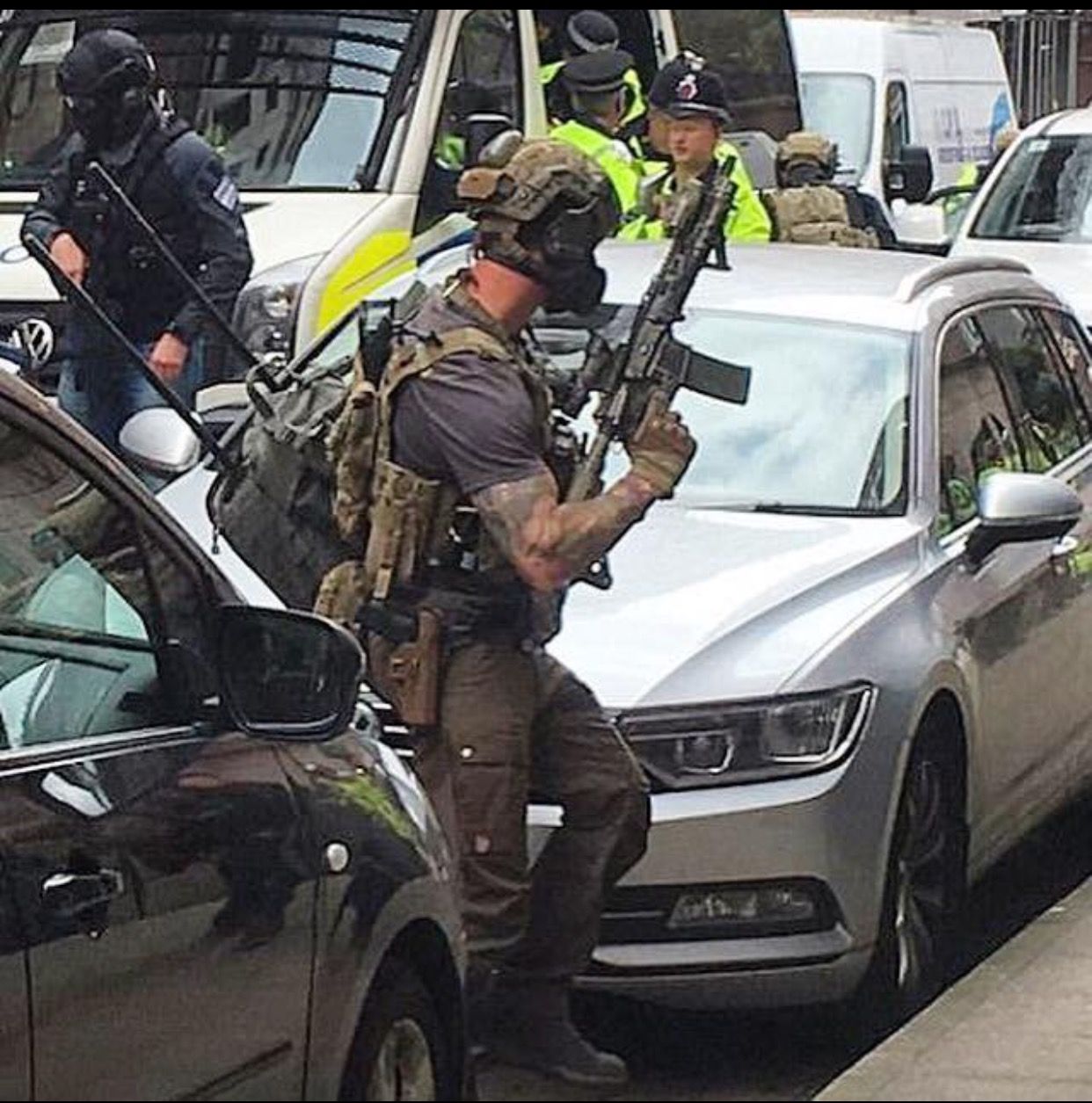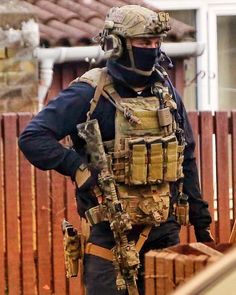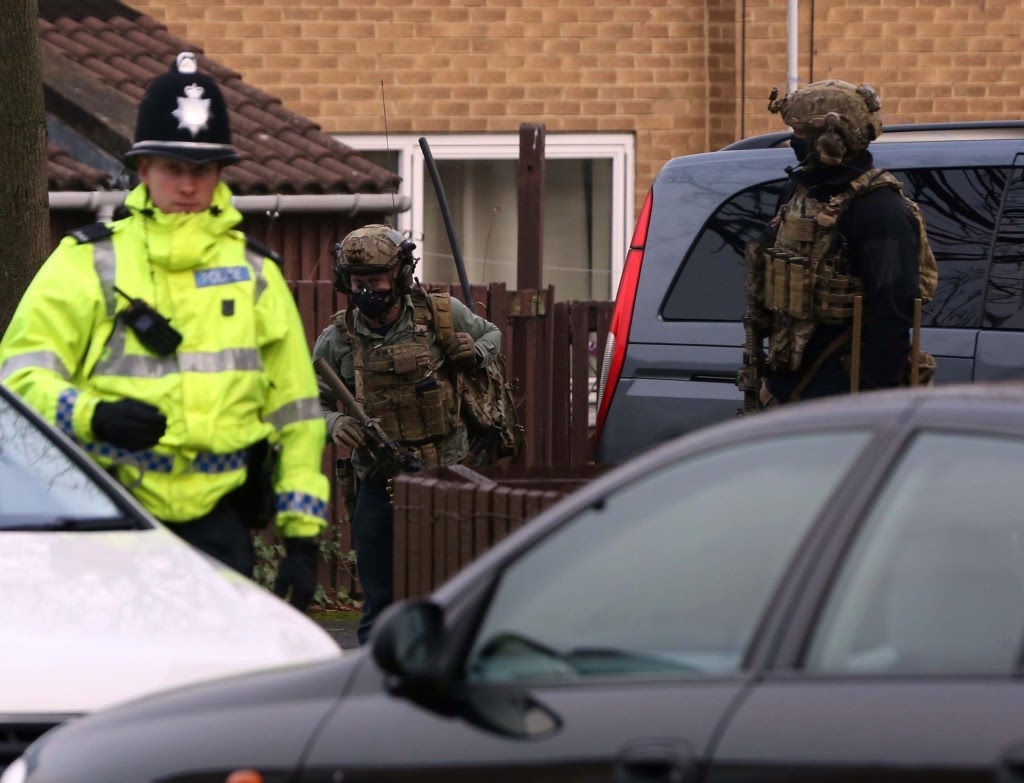The United Kingdom’s special forces (UKSF) are arguably a key component of the UK’s warfighting doctrine. However, much of what they do is shrouded in secrecy. The Uk government does not comment on the activities of the special forces. Therefore, the Special forces image and reputation often stems from its representation in the media. This relationship can be described as a double edge sword. The media can often reinforce negative or unrealistic ideas or perceptions that may harm or present falsehoods about the Special Forces.But the media can also present a positive preconception about the Special Forces. Post 9/11 ever increasing public interest and media coverage on the activities of the Special Forces has led to a change in the relationship between UKSF and the media. In different sections of the media from films and TV to traditional news media. Coverage of Special Forces have changed during the War on Terror and likely that relationship will continue to evolve for years to come. Especially with the ways the media reports and covers events and issues, the rise of new media and people being able to post media at an individual level will mean that the Special forces will face a variety of new challenges when dealing with the media.
Tv and Film in relation to the Special forces is one of the main ways people gain their perceptions about the Special Forces. Recent shows such as Our girl, Ultimate force and SAS:Who dares wins have portrayed the special forces in a variety of ways. However, not all of these portrayals have been considered as accurate but more “dressed up” for television. This portrayal in relation to the special forces often either exaggerates the role of women in the Special Forces (of which there are very little due to them only being eligible to apply for selection only recently). TV often portrays the Special Forces personnel in a light in which can be positive or negative. An example of this is Our Girl’s Elvis. Georgie ( The main Character’s) Former love interest. The audience is given the impression that he is unfaithful, unreliable and works for his own self interest. This is seen in the scene in which he leaves the main character at the altar before their wedding. This gives the impression that the Special Forces’ image as the Special Forces do not actively advertise who they are and what they do given their occupation. Images of Special forces can be detrimental to their reputation due to their portrayal in TV media especially in regards to Post traumatic Stress disorder.
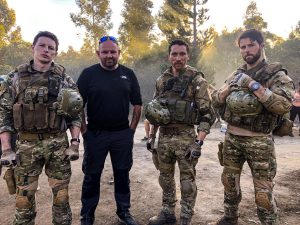
Film’s representation of the special forces often have similar characteristics and issues of TV media. However, Films such as London has fallen and Bravo Two Zero often portrays the Special Forces in a more positive light. There is often more of a hero angle in the portrayal which depends on the film’s subject matter. In terms of post 9/11 film material relating to the special forces is few and far between. However, there are some notable films that cover key events in the Special forces history. Examples of these are Bravo two zero and 6 days. These films portray the special forces often in a positive light. In regards to their actions. However, this is not always an accurate portrayal of the special forces often dramatizing real events for the sake of entertainment value. This is understandable given the primary function of a film is to entertain an audience and may often play to an audience’s preconceived notions about the special forces. Also given the secretive nature of the Special Forces and their work not much information may be available about an operation or event that the film covers due to operational security reasons. This impacts the Special forces as these films can often leave a sensationalized image of what the special forces do and who they are. Leading to inaccurate perceptions of the Special forces in the public eye.
Coverage of the Special forces in news media is often light due to the nature of their role in military operations. But there is sometimes coverage of major events or issues that are brought into the public eye. Events such as the Terrorist attack in Nairobi in 2019 were covered in great detail regarding the SAS and it’s involvement in ending the siege. Most news outlets are mostly impartial and often take a “just report the facts” approach when it comes to special forces and the media. One reason for this is the presence of the Defence media advisory (DMCA) which has the ability to censor information which is pertinent to national security. However the way the special forces interact with the news media is often an interesting one. Special forces often try to minimize exposure to the media as much as possible in order to keep operational security and this is done in a number of ways either by concealing information form the media via the DMCA or by taking measures in the field to conceal identities of the personnel and the Special forces unit themselves, for example wearing balaclavas to conceal personal identities or dressing in uniforms similar to police tactical units as to blend in. This was most notably seen in the SAS’s response to the Manchester bombing in 2017. In which the SAS wore black Clothing with police patches on to disguise who they were. They were later identified due to the non standard equipment that they used and wore during the operation. The relationship between the special forces and the news media can be described as one of secrecy and control of information. Traditional news media is heavily regulated by what they can and cannot cover by the ministry of defence and therefore cannot always provide clear cut or particularly accurate accounts of the special forces everyday lives and day to day activities. However, when major activities by the Special forces are covered it is often undertaken in a way that does not go into depths of what the Special forces are doing and who they are but news media often covers major issues and events briefly with little to some detailed information about the unit in action. This can affect the portrayal of the special forces as it can often give an almost mythical status to the special forces and news media is useful for covering major events but often little detailed information can actually be gleaned if one was undertaking serious research as I currently am in this project. As details of the event such as a terrorist attack can be gleaned in great detail but the units responding to such an event are often either not mentioned in the news reports or either given very little detail in order to maintain operational security.
Video games as a contemporary media source has recently had a massive impact on the way the special forces are portrayed and shown to the general public. Games such as Call of Duty and Medal of Honour feature the Special forces. Most notably the SAS as they are the most well known unit of the special forces. Call of Duty most notably the Modern Warfare series feature the Special Air Service in depth. With characters such as Captain Price and John “Soap” Mactavish being integral to the story of the Modern Warfare games. The portrayals of the UK’s special forces are mostly found in the games Modern Warfare (the first installment) and Modern Warfare 3. In terms of the equipment used the SAS are portrayed as using equipment very similar to what was used in the Iranian embassy siege of 1980. This is a very inaccurate representation of the special forces but understandable due to the lack of reference material in order to gain accurate information on what the SAS would look like post 9/11. However, in the case of the games of Medal of honor: Warfighter and Call of Duty Modern Warfare (the 2019 reboot) the SAS operators look more modern and realistic arguably due to more reference material available to the game developers in their portrayal. Video games have become a huge part of the way the general public see into the lives and roles of the special forces. And the UKSF’s relationship with these games is a complex one. Especially in the US this video game- Special forces relationship has had a negative side where US Navy SEALs were caught consulting for the game Medal of Honor: Warfighter in which classified tactics and capabilities were revealed to the game developers. As video games try to compete for consumers’ attention by trying to create more realistic impressions and interpretations of the special forces, the special forces must be careful to keep their work under secrecy as much as they can. Otherwise, information that must be kept under wraps could be launched into the public eye which could be disastrous for combat effectiveness and could endanger the unit members lives. However, a positive from this relationship can be taken away. The general public now has an accurate interpretation of what the special forces do when on operations. Granted that this interpretation may not always be 100 percent accurate and often dramatized for entertainment purposes video games now offer a more realistic window into the secretive world of the special forces than ever before seen in the media.
Recently in terms of print media there has been a resurgence of the number of books being published about the SAS or former members of the SAS publishing books about their time in the service. Numerous authors such as Andy Mcnab and Chris Ryan have published books about their time in service. Other authors such as Ant Middleton and Jason Fox have also capitalized on their time in the special forces and authored books commencing a new wave of military literature. The portrayal of the special forces here can be considered biased especially in regards to books that are authored by ex-Special Forces members themselves as it can be seen and argued that the former members of these units will want to paint themselves and their units in a positive light. This relationship with book writing and the special forces has often led to jokes within the military about the SAS’s sand beret being issued with a book deal. It is arguable that the literature about the Special forces which has been written by former members is biased to a certain extent. However, to what extent? That is an answer we may never know due to the secrecy of the units themselves and the rigorous censorship protocols they must adhere to in regards to the Ministry of Defence’s DMCA system. Books are arguably not the most widespread form of media in which the public receive their perceptions about the special forces but I would argue that it is one of the most impactful. It is one of the only forms of media in which one can obtain a firsthand account by former special forces members. What does this relationship mean for the special forces? One effect is the accidental leaking or exposure of classified information done unintentionally by a former member of the special forces. Therefore, the DMCA system is in place to prevent such accidental leakages. Books also have the ability to create large scale expos on certain events or topics and given the nature of the special forces the command may want to control the flow of information that is released to the public. Leaking to a tricky but controlled relationship between both sides.
The advent of Social media has had a huge effect on the way the special forces operate at home and abroad. In regards to covering events on the home front and abroad social media now means that anyone with a smartphone no has the ability to cover events of the special forces. This has had an effect on the operational security of the special forces as anyone is now able to post content online. The sheer number of facebook groups devoted to special forces enthusiasts and hobbyists ranging from strategy and security interest groups to airsoft rifle cloning groups is astounding and the access to reference material they have is almost somewhat concerning. An example of this is just after the attempted bombing at the Liverpool hospital in November of 2021. In less that 24 hours after the SAS’s counter-terrorist operation photos of SAS personnel during the operation were already in some of these Facebook groups. One must also know that these photos were without censorship. One way the special forces has tried to prevent identity leakage is use the very low tech solution of using balaclavas when operating within the country to protect their identities. The Special forces have also set up media groups in which it can control their image through posting certain types of content through an intermediary which is not directly linked to them but often set up by former members in order to control their image. The relationship between the Special forces and social media has meant that there are now new avenues for the special forces operational security to be possibly compromised and the Special forces has had to take action to prevent this however, the adage still is very much relevant “It only takes one person with a camera phone”.
The main issues of the special forces in regards to the media are still somewhat similar to the regular military’s. However, one key theme is the special forces’ devotion to secrecy when on and off the battlefield. This has become problematic. Journalists who write on the special forces can often be censored or have their work taken from being published under the guise of “national security” with the DMCA system. Pieces that often do get published are often researched with third party research and almost never gleaned from the units directly. It is also fair to say like with the rest of the military there is a certain level of distrust within the special forces for the media. The media from my research either tends to revere or revile the special forces when it comes to their operations and actions depending on what type of narrative they may be telling and due to the secrecy of the special forces it is very hard to corroborate such stories. Therefore, leading to a characterisation of the special forces through the media that may be taken out of context. And when the special forces do give access to journalists it is often heavily controlled over what information they can and cannot access. The “mythical” portrayal of the special forces is arguably one of circumstance that has also worked out in their favour. Not only does this give the units an intresting reputiati
Overall, The relationship between the special forces and the media post 9/11 is a complex one with many issues surrounding it. It can be seen not as one of choice due to the special forces nature of secrecy but one of necessity as it is arguable that at some point the special forces would be seen in action at some point. The special forces’s nature of secrecy and discreteness is often counter to the media’s openness and desire to report all the facts and this is often an issue in which both sides are at odds. However, in regards to the new media the special forces have been able to make large amounts of headway into keeping their operational security safe as well as projecting an image of themselves that remains as mythical as ever. With ever increasing public interest in who the special forces are and what they are doing it is arguable that the media may only increase its coverage of the special forces and entertainment media will show more interpretations of the special forces, only time will tell. But for now the special forces will remain in their quiet “gray man” image and appearance for the meantime for now the special remains covert. But the question remains: for how long is this going to last no secrets stay secret forever? The answer to that is we really don’t know and even if it will ever happen.


